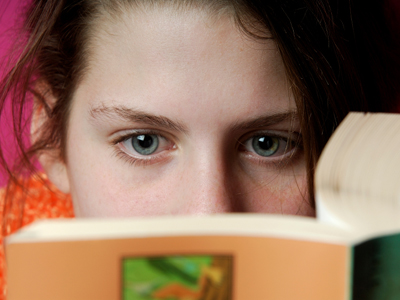
Jane Eyre - Extract 1
This GCSE English Literature quiz is the first of two extract questions for Jane Eyre by Charlotte Brontë. It takes place towards the end of Volume I, when Jane has become somewhat dissatisfied with the routine and quiet nature of her employment as a governess. Having left Lowood School in search of new experiences, a new location and new people to know, she finds that she is not as satisfied as she had hoped.
How to answer an extract question in an exam:
Before writing your answer to an extract question, make sure that you read the passage through more than once. Try to make this a habit because re-reading gives you the opportunity to notice different details and aspects of the passage.
My help had been needed and claimed; I had given it: I was pleased to have done something; trivial, transitory though the deed was, it was an active thing, and I was weary of an existence all passive. The new face, too, was like a new picture introduced to the gallery of memory; and it was dissimilar to all the others hanging there: firstly, because it was masculine; and secondly, because it was dark, strong and stern. I had it still before me when I entered Hay, and slipped the letter into the post-office; I saw it as I walked fast down hill all the way home. When I came to the stile I stopped a minute, looked round and listened; with an idea that a horse’s hoofs might ring on the causeway again, and that a rider in a cloak, and a Gytrash-like Newfoundland dog, might be again apparent: I saw only the hedge and a pollard willow before me, rising up still and straight to meet the moonbeams; I heard only the faintest waft of wind, roaming fitful among the trees round Thornfield, a mile distant; and when I glanced down in the direction of the murmur, my eye, traversing the hall-front, caught a light kindling in a window: it reminded me that I was late, and I hurried on.
I did not like re-entering Thornfield. To pass its threshold was a return to stagnation: to cross the silent hall, to ascend the darksome staircase, to seek my own lonely little room, and then to meet tranquil Mrs Fairfax, and spend the long winter evening with her and her only, was to quell wholly the faint excitement wakened by my walk, — to slip again over my faculties the viewless fetters of an uniform and too still existence; of an existence whose very privileges of security and ease I was becoming incapable of appreciating. What good it would have done me at that time to have been tossed in the storms of an uncertain struggling life, and to have been taught by rough and bitter experience to long for the calm amidst which I now repined! Yes, just as much good as it would do a man tired of sitting still in a a “too easy chair” to take a long walk: and just as natural was the wish to stir, under my circumstances, as it would be under his.
I lingered at the gates; I lingered on the lawn; I paced backwards and forwards on the pavement: the shutters of the glass door were closed; I could not see into the interior; and both my eyes and spirit seemed drawn from the gloomy house — from the gray hollow filled with rayless cells, as it appeared to me — to that sky expanded before me, a blue sea absolved from taint of cloud; the moon ascending it in solemn march; her orb seeming to look up as she left the hill tops, from behind which she had come, far and farther below her, and aspired to the zenith, midnight-dark in its fathomless depth and measureless distance: and for those trembling stars that followed her course, they made my heart tremble, my veins glow when I viewed them. Little things recall us to earth: the clock struck in the hall; that sufficed; I turned from moon and stars, opened a side-door and went in.
The hall was not dark, nor yet was it lit only by the high-hung bronze lamp: a warm glow suffused both it and the lower steps of the oak staircase.
Charlotte Brontë, Jane Eyre (Oxford University Press, 1975)
Ready for more?
not all...
quizzers. Try to win a coveted spot on our Hall of Fame Page.







